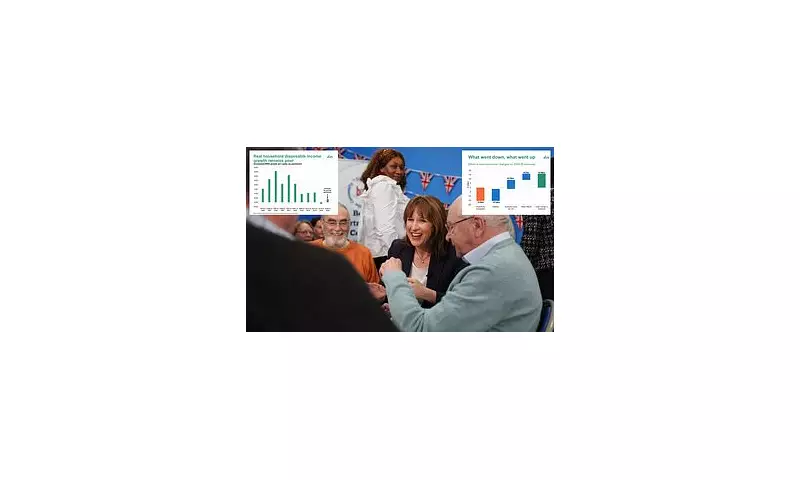
Chancellor Rachel Reeves' assertion that she was forced to unleash a £30 billion tax increase in her Budget has been firmly rejected by a leading economic think-tank. The Institute for Fiscal Studies (IFS) has contradicted the Chancellor's central defence, arguing that the significant tax rises were a conscious political decision, not an unavoidable fiscal necessity.
A Budget of Decisions, Not Destiny
During the traditional post-Budget briefing, Helen Miller, Director at the IFS, dismantled the government's narrative. She pointed out that despite months of warnings about the dire state of the public finances, the Office for Budget Responsibility's (OBR) final forecast revealed no need for a major fiscal repair job. Miller insisted the Chancellor had actively chosen to ramp up taxes to fund increased spending and build headroom, even though the Treasury's own watchdog saw no compelling requirement for it.
This stark assessment arrived alongside a grim IFS prognosis for family finances. The analysis indicates that household wealth is set to barely increase over the course of this Parliament, painting a picture of prolonged economic stagnation for many.
The Deepening Tax Burden on Workers
While defending her Budget, Rachel Reeves maintained that the tax rises represented the 'absolute minimum' of pain for working people. However, this claim is set against the IFS's calculation of the long-term impact. The think-tank estimates that by the new end date of the tax thresholds freeze in 2030-31, a staggering 4.8 million more people will be pulled into the higher rate of tax compared to 2022.
Critically, the IFS attributes one million of those additional higher-rate taxpayers directly to Ms Reeves' decision to extend the freeze for a further three years. The Chancellor faced intense scrutiny over whether this package broke Labour's manifesto pledge, defending herself by stating the document only committed to not changing tax 'rates', not thresholds.
Ms Reeves repeatedly avoided demands to apologise for her pre-election assurances that working people would not be targeted. She further stoked concerns by refusing to confirm that taxes will not rise again in the future.
An Unexpected Fiscal Lifeline
The IFS explained that while the OBR did downgrade its productivity forecasts, the government's overall fiscal position was only £6 billion worse than the March forecast. This was a minor shift compared to the typical £21 billion movement seen in such fiscal events. The key saving grace for the Chancellor was a 'stonking increase' in forecasts for tax receipts, which largely offset other negative pressures.
Helen Miller summarised the Budget's mechanics: 'In short, she raised spending, and she raised taxes. There's more spending than taxes for the next three years, meaning higher borrowing. After that, the tax rises are larger, delivering an increase in the Chancellor's 'headroom'.' She characterised it as a borrow-to-spend Budget in the short term, transforming into a tax-and-spend and tax-and-bank-it Budget in the medium term.





